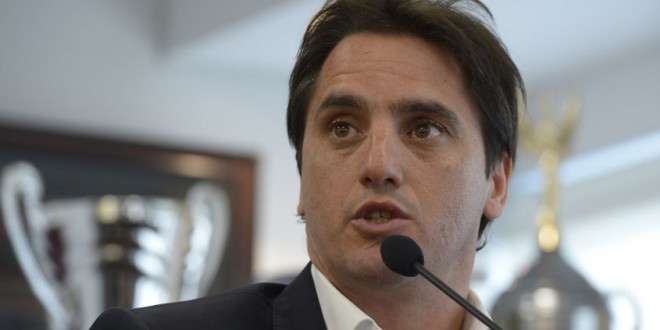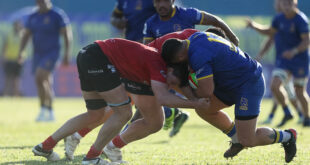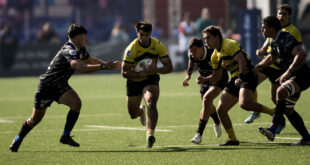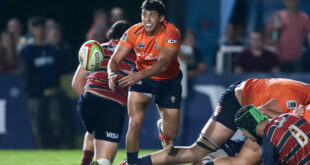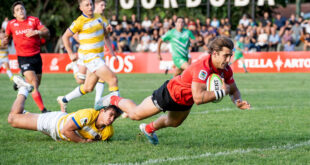In a radio interview with Raúl Taquini Agustín Pichot placed his cards on the table. The World Rugby Vice Chairman made it known that the future is one of great hope for a once isolated union.
Hosting Rugby World Cup 2027
The former Pumas captain reaffirmed his desire for Argentina to host the Rugby World Cup in the next decade. With 2019 in Japan and Argentina not bidding for 2023 this makes 2027 the viable year.
It goes far beyond being a mere desire however. Indeed, Pichot is pushing hard for it to become a reality. He has a strong case upon which to launch a bid. His country’s test team has a superior Rugby World Cup record than all other countries yet to host the event.
Over the years Los Pumas have proven themselves to be a world class team. Pichot captained the team to third place in 2007 and eight years on the team appeared in a second Semi Final. Rugby World Cup 2019 hosts Japan are yet to reach the Quarter Finals. The same is true of 2023 bidders Italy while their opponents, Ireland are yet to reach the Semi Finals.
The remaining bids are to come from France and South Africa. Both countries are prior hosts of the tournament. Argentina joins both in having hosted a FIFA World Cup. The South American nation did so in 1978, some twenty years before France and thirty-two before South Africa.
Like both Argentina is a republic and has a large population. There is also a policy of moving matches around the country which is vital in establishing a case for being a host nation. In addition to Buenos Aires home have played matches in Catamarca, Córdoba, La Plata, Mendoza, Resistencia, Rosario, Salta, Santa Fé, San Juan and Tucumán under Daniel Hourcade.
These cities and others would all be contenders to host Rugby World Cup fixtures. Pichot has been instrumental in taking matches outside of Buenos Aires and is open to more. He went so far as to say that he would be open to giving a few matches to Uruguay.
Such a move would depend on a variety of factors and further details will emerge over time. For now what can be confirmed is that the project is extremely serious – Argentina indeed want to host the event. Both the UAR and Argentine government are on board.
New Home for Jaguares
Soccer club Ferro Carrill Oeste is planning to redevelop their stadium. This brings with it an exciting possibility for Argentine rugby. The club’s stadium was used as Argentina’s Twickenham for a substantial period of time, ending in 2000.
The stadium played host to Los Pumas’ 1979 and 1997 wins over Australia and also the 1985 draw against New Zealand. It could now be set to be converted into the UAR’s home stadium.
Discussions are underway for the UAR to complete the stadium’s renovation and for Los Jaguares to play there. Pichot neither confirmed nor denied this though addition sources have confirmed that it is indeed a possibility.
European Clubs
A third important theme that Pichot covered was that of European clubs. During his playing days he played for Richmond and Bristol in England and for Stade Français and Racing 92 in France. With Argentina being strictly amateur until his retirement from test rugby it was these clubs who developed him into a world class athlete.
Not withstanding Pichot underlined the need to shake-up rugby. He argued that European professional clubs are destabilizing rugby. Their power can be too much for unions which complicates the international game.
It led to the UAR changing their policy to block European-based players from playing for Los Pumas. The policy can into effect in June as Tomás Cubelli was the only player based abroad selected. He was eligible due to playing for the Brumbies.
Rather than fight for the release of others Pichot has defended the losing of doors. Come home if you want to play has been the message. Many have, but not all.
The anti-profressional rhetoric that dominated Argentina for so long has thereby been replaced. For so long Buenos Aires (URBA) clubs fought tooth and nail to defend amateurism. Fearing for what professionalism might mean for them they even blocked PladAR players from representing their clubs.
Believing that the players would be superior to the amateurs who are not academy players, URBA blocked Pampas players from club duty. In the radio interview Pichot backed the clubs saying he does not agree with professional players playing for their clubs.
 Americas Rugby News Rugby news from across the Americas!
Americas Rugby News Rugby news from across the Americas!
